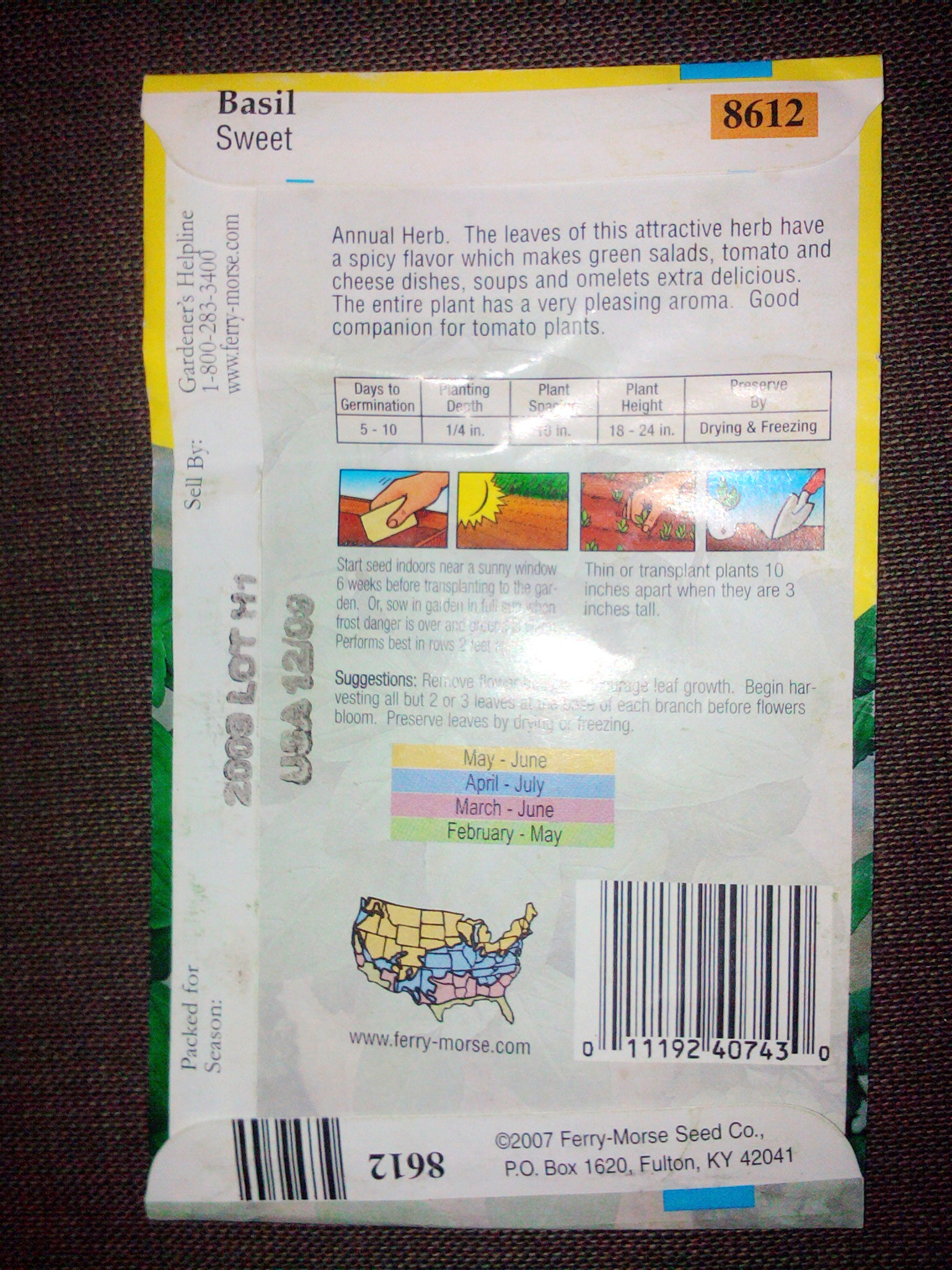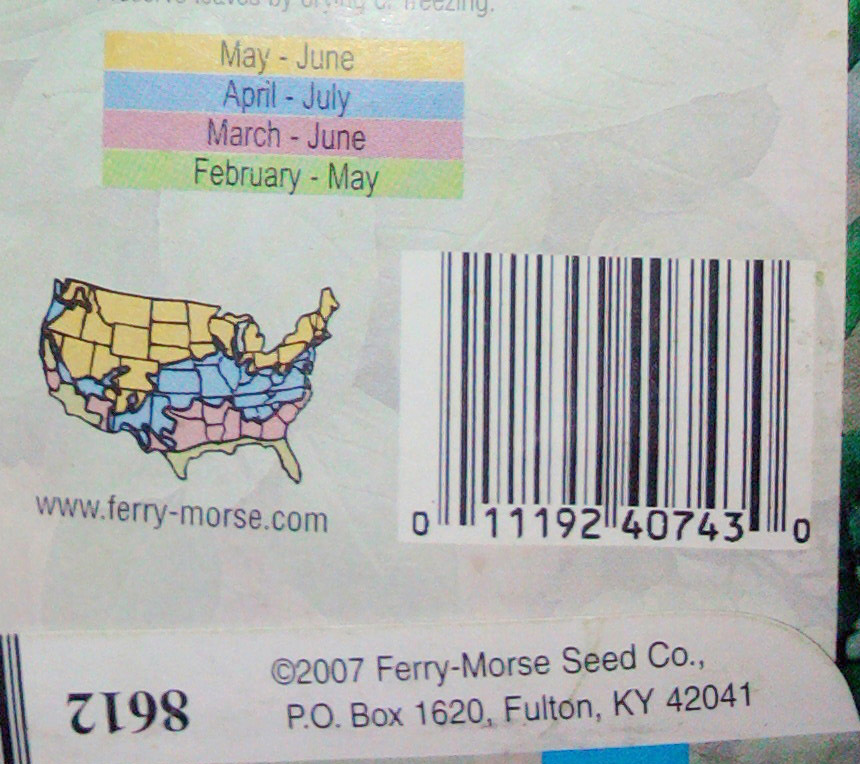
The package seeds come in contain good information about the seed variety inside. As much information that is included on the seed pack it is becoming more rare to see the listing of a hybrid or non hybrid. The terms described below identify if a seed is a hybrid, or an open pollinated variety. These codes will not always be in the same location on the pack and sometimes are missing altogether. Note in the picture the stamp on the left side of the pack signifies that this is a H1 hybrid Sweet Basil packed for planting in 2009.
OP – Open Pollinated. This means the plant is a pollinator, will give you seeds next year. Op is what you are looking for if you are a seed saver.
H1 – H1 Hybrid, or, Hybrid 1.
H2, T1 More listings describing Hybrids.
OTR Homegrown supports one of our country’s most important institutions concerning seed saving and storing, “Seed Savers Exchange”. Located in Decorah, Iowa, Seed Savers Exchange at Heritage Farm saves over 2,000 strains of seeds growing 5,000 varieties every year to preserve these strains. We will be saving as much of our seed as possible and the few hybrids that we are growing we are not going to let bolt, or flower.
More Information on a Seed Pack.
- Time to Plant by Region
- Seed Sowing Depth
- Distance Between Rows
- Plant Indoors and Transplant, or Plant Directly in the Ground
- Soil Drainage Needs, Soil Depth Needs
- Year the Seed was Grown, and or Year Grown For. Most seeds have a four year shelf life, for onions it’s two.
- But Not Always if a plant is full sun
- Organic seed is seed that was taken from an organically grown plant.
Related Term Definitions In Lamen’s :
Hybrid and Non Hybrid
In the garden, a hybrid is a plant that has recently been cross pollinated by two or more other strains or varieties. A hybrid plant will yield seeds that can grow but those seeds can grow to be a mix of any and all of the varieties that have been crossed into the mother plant. This makes seed saving of hybrids non-reliable and a less secure method of seed saving.
A non-hybrid, also know as “Open Pollinated” (OP), is a determined strain that has been established for years and that repeatedly continues to give us seeds that will be that same (slightly evolved) variety of plant.
Heirloom : The term heirloom in general refers to things that are older than 50 years in age. As such in the garden, the category of heirloom refers to the variety of seeds that are older than 50 years; a category that encompasses seed varieties that have been around long before Jesus Christ and Mohamed, The Pharaohs, even all human life as we know it.
Genetically Modified (GM) : The process of genetically modifying a plant starts by removing some DNA or genetic material from one plant, then that DNA is mixed with a virus that has the ability to penetrate the genetic cells of another plant while carrying the new genetic material. This virus DNA mixture is then inserted into the new plants using something similar to an air gun. The seeds of the new plant are considered genetically modified seeds.
The most widely used genetically modified seed in the World is Monsanto Inc.’s Round Up Ready Corn, Wheat, and Soy. The structural element of the chemical plant killer Round Up was shot into corn, wheat, and soy introducing the chemical makeup of Round Up into the genetic makeup and structure of the new plants. The seeds of these injected plants will yield corn, wheat, and soy that has Round Up in it’s genetic structure; now farmers can dump Round Up on the fields and the Round Up Ready Corn, wheat, soy,* does not die because it “is” Round Up.
* For more information on what Monsanto genetically modified varieties of plants are at what stage in development LINK HERE to go to Monsanto.com /
Terminator Gene : Monsanto has developed and the U.S. has approved the use of a gene that enables all the seeds in a plant to be sterile. This gene cuts the continuation of vegetable to seed to vegetable to seed process that human life has trusted upon since our inception.
QR Barcode Scanners Work Great To Look Up Seed Packet Information

It is not always listed on pack whether a plant variety is a hybrid or an open pollinated non-hybrid. Other ways to find out more about a variety is to look it up online or in reference books. For smartphone users or anyone else who has a handy bar code scanner hanging around you can scan the barcodes on most seed packs and get a link to the product information online:)
Most gardeners will buy seeds from a source that they can trust that the seeds are non-hybrid and in most cases organic like Seed Savers Exchange or Seeds of Change.
